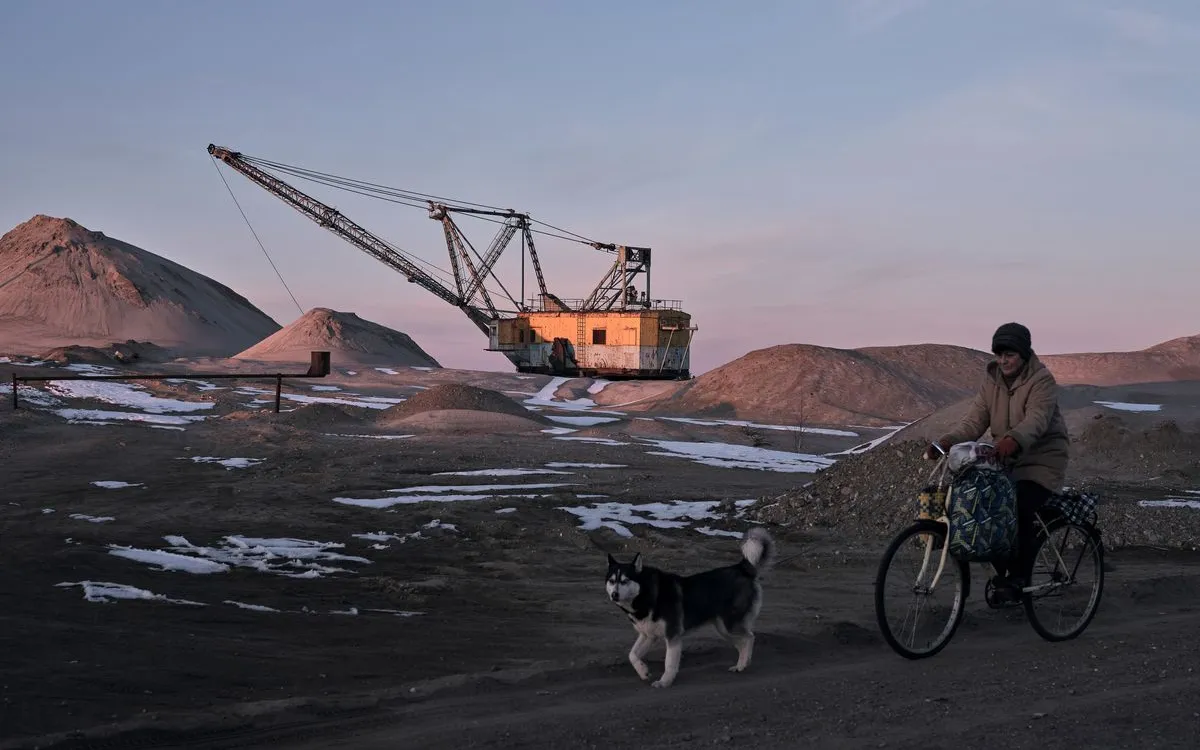
Kyiv and Washington are celebrating a significant milestone as they agree to jointly develop Ukraine's natural resources following weeks of intense negotiations. However, experts and officials caution that while the current version of the agreement marks an improvement over previous drafts, it is merely an initial step towards more comprehensive negotiations. As of now, no signatures have been affixed to the document, leaving room for potential changes in the coming days.
“It’s definitely much better compared to what we saw before. I don’t see any traps, but we need to reach a final conclusion,” said Oleksandr Merezhko, a Member of Parliament, speaking to the Kyiv Independent. After extensive discussions, Kyiv and Washington finalized the terms of their agreement on February 25. This final draft notably eliminated Ukraine’s primary concerns, including a previous demand for Kyiv to contribute to a $500 billion reconstruction fund and a stipulation for a 2:1 investment ratio requiring Kyiv to match U.S. aid.
The agreement proposes establishing a reconstruction fund, which will be co-managed by Kyiv and Washington. Ukrainian state-owned enterprises engaged in sectors such as mineral extraction, oil, gas, and hydrocarbons, along with crucial infrastructure, are expected to contribute 50% of their future revenues to this fund. The contributions aim to attract foreign investment into Ukraine’s natural resources, bolstering the country’s economic prospects.
“Just the publicity around the fund will bring Ukraine to the attention of average U.S. investors,” noted Serhii Fursa, deputy managing director at investment firm Dragon Capital.
The current draft resembles more of a memorandum of understanding than a binding international treaty, as stated by Merezhko. Consequently, it does not require ratification by Ukraine’s parliament, which could delay progress. A subsequent “Fund Agreement” is set to be negotiated, which will necessitate parliamentary approval. Presently, the agreement remains largely symbolic, demonstrating the commitment of both Kyiv and Washington to pursue shared objectives.
Edward Chow, a non-resident senior associate at the Center for Strategic and International Studies, expressed concerns that the lack of clarity surrounding the fund's operational framework could lead to unmet expectations. “Without the most basic elements and clarity, there is a risk that it sets up expectations that may be dashed,” he warned.
President Volodymyr Zelensky and U.S. President Donald Trump are expected to sign the agreement in Washington on February 28. Although the deal does not include the security guarantees Kyiv was hoping for, the presence of American assets in Ukraine may bolster U.S. investments in the country's defense. “Americans tend to defend more those countries where they have investments, where they have economic interests,” said Merezhko.
American participation in Ukraine's state-owned enterprises, of which there are over 3,000, could lead to improved governance and operational efficiency, according to Andy Hunder, head of the American Chamber of Commerce in Ukraine. “With the right management, many of these state-owned enterprises could show good results,” he stated.
The agreement specifies that revenues will not be derived from state enterprises that are already contributing to the general budget, excluding major taxpayers like Naftogaz. Additionally, both nations wish to prevent adversarial countries from benefiting from the reconstruction process post-peace agreement. Merezhko interprets this clause as a potential hint directed at China, as the U.S. seeks to limit Russia’s ties with its economic rival.
During a press briefing on January 26, Zelensky emphasized the necessity for the fund to be Ukrainian-American in nature, rather than dominated by U.S. control, as outlined in previous proposals. He highlighted the significance of removing debt obligations and the 2:1 investment ratio, which are “particularly important” for Ukraine's financial health.
Fursa remarked that the current deal is framed on “much more acceptable terms,” removing the stipulation for Ukraine to repay U.S. aid. However, uncertainties remain concerning the fund's management, its size, and the fiscal jurisdiction under which it will operate. There is no definitive timeline for its establishment, and amendments to Ukraine’s tax laws will be necessary to redirect funds from the state budget to the proposed reconstruction fund.
Fursa expressed skepticism about the fund's viability, citing insufficient revenue from Ukraine to sustain it while the U.S. government has not yet committed to investing in it. Trump likely envisions that private American companies will enter Ukraine and secure prime investment opportunities. Ukraine initially proposed its critical mineral deposits to Trump, suggesting that trillions of dollars worth of resources lie beneath its soil.
While the current agreement encompasses all natural resources, including lucrative oil and gas sectors, critical minerals have somewhat receded in importance. George Popov, a research analyst at the National Association of Extractive Industry of Ukraine, voiced concern over the absence of secure investment guarantees for the mineral sector. “As an extractive industries association, we would like to see real guarantees for the development of the mineral sector in Ukraine,” he stated.
Experts suggest that focusing on new mineral deposits rather than existing mines could yield positive results, alongside privatizing some mining companies. Volodymyr Landa, a senior economist at the Kyiv-based Center for Economic Strategy, noted that many economically feasible resources have already been mined, indicating a need for more strategic exploration and development.
For any investment to materialize, a “long and lasting peace” is essential, Landa concluded, emphasizing the crucial interplay between stability and economic growth in Ukraine.